#and of course there's the inherent limitations of taylor being a) a trans character set in this world of High Finance and b) the Only trans
Explore tagged Tumblr posts
Text
i’m always 2 exhausted even by thinkng about it to even begin discussing At Length what’s So Exhausting About Billions’es Handling Of Their Trans Character (which is way way better than it could be) but like, some of the main points of it are
taylor can outright say that they’re nonbinary One Time, but otherwise their gender can only be Made Relevant via other people misgendering them and/or by being transphobic towards them, and this happens like. loads of times. and sometimes in ways that feel a touch excessive / kind of indulgent in reminding us like haha don’t forget this character Is Seen As ___ by people and their body and presentation is a matter of Fascination for cis audiences, but not necessarily respected, and we can see the character navigate this but they won’t discuss it at length b/c why would any trans person Want to talk about being trans OR have another trans person in their life to talk to, cuz what are the odds of That.
in relation to that last point: taylor can’t talk about their Not Cis experiences / reality, or even hardly mention it directly / by name, but the show can keep writing them as reaching out to random useless cis people in their life when these cis people are having some kind of super particular individual problem, and taylor laying out some really REALLY watered-down, vague, indirect version of their being trans as a way to show they Relate to whatever dumbass situation this awful cishet person has gotten themself into. being in some kind of frustrating situation? feeling alienated or isolated or undermined or misunderstood or judged? well i guess you’re experiencing a tiny bit of the trans existence! except you are not. and like, of Course a character would look like an asshole if they were like “boy taylor, now that i’ve had a rough week due to some really dumb problem, i think i understand what it must be like for you to be nonbinary!!!” but it’s fine if Taylor Chooses To Relate Their Transness to whatever some cishet loser is dealing with. no, being #outed as i-do-bdsm is nothing like being an out lgbtq individual. and like all these people in taylor’s sphere are nightmare people who don’t deserve their sympathy in the first place but that’s another gripe lmfao
can’t believe that was the “brief overview” version lmao but anyways, i was thinking about another weird and kinda frustrating thing that someone brought up on twitter
well actually it was kinda what two people were talking about on twitter, and the first thing was how like, yknow in a show like this where the ppl focus of the series (supposed to be axe and chuck i guess like eugh can you even imagine) are Supposed To Be Assholes? it’s always like, how those main chars in “prestige drama” are generally men who are *meant* to be seen as shitty and probably dumbasses, and yet like, there’s an inherent Sympathetic Treatment in focusing on them and in having their godawful exploits drive a lot of the plot and action and suspense and etc, and it’s not exactly enough to just say like “oh but you’re suppoooosed to Know that they suck”
but the second thing was how in “Prestige Drama” Tv With Shitty Protagonists, there has this tendency to have the crappy usually-cishet-white-abled-men main chars be like, not ever really display any “””especial””” level of bigotry?? saying something how like, any big -isms or -phobias seems to be reserved for the “”””real”””” bad guys. and that kinda ties in a bit i think with how, even if there’s the “well they’re supposed to seem unsympathetic” justification, they’re still........not really supposed to seem too unsympathetic. and it’s not that anyone would ever think it’s ~realistic~ for a nonbinary person to be in the world of High Finance and be able to announce their pronouns and have their identity for-the-most-part respected by everyone right off the bat, and i sure don’t want billions to be going for that ~realism~ on this one thing (especially when it doesn’t exactly try to strictly hold itself to Realism in plenty of other regards) and have taylor dealing with constant misgendering and likely no one with authority consistently watching out for them in this manner and people telling shitty jokes behind their back and etc etc etc which might be more ~realistic~ but please don’t.........
but at the same time it’s awfully convenient that apparently everyone at axe cap is such a committed Trans Ally that even when taylor defects by the end of s3 and everyone is like “booo hiss we hate taylor” they all feel free to disrespect taylor in pretty much any way Except for showing any signs of transphobia, ever. very nice that none of these characters have to bear the burden of being labeled A Real Jerk for insulting taylor on the grounds of their being trans (other insults are fine). like the guy on twitter said, bigotry is only for the Really real bad guys who really only need to be one-dimensional or in the background or otherwise not given that much attention.
like it exasperated me So much when there was some scene with axe and wags and wendy (like, scream. already i’m in hell. for gods sake) where wendy’s getting the green light to try to sabotage taylor’s relationship with their dad (to.....destabilize their fund?? just kinda bum them out, possibly??? it seems to be the latter 9_9 ) and axe is like “yeah fuck it, go for it, grrrr i hate taylor >:| “ and wendy says something in which she then Pauses and adds a footnote to her sentence, in which she clarifies that by “them,” she is referring to taylor, not taylor and [someone else she’d mentioned in the same sentence]. it’s just exhausting, ugh. like, yeah yeah believe me everyone who uses singular They pronouns knows allll about how oh no, there’s the chance for Ambiguity now!!! we never have that problem with other pronouns ever!!! and it means we deserve to force people to pick He or She! and it’s just like, ugh. yeah thank you for reminding us that these three bastards who are currently plotting how to permanently destroy a familial relationship of tay’s are nevertheless being sure to Respect Their Pronouns while doing so!!! not that they *shouldn’t* but like, as fucking though. and it’s just so......fucking unnecessary ugh. you don’t have to awkwardly make sure to point out you were using ~the singular They~ right then just as this clunky reminder that oh i’m not Transphobic @ them tho........like shut up thanks so much. i would like for taylor to never have to interact with wendy again, but god knows im sure that wish won’t come true. like, you didn’t have to clarify in the first place. and it’s so nice that all these nightmare individuals are such committed #allies. ughhhhhhhhhhhhhhhh
#again not that i Want them to be more ~realistically transphobic~ but it's all sooo annoying#and again like. the interviewee comes in and misgenders your trans coworker? and you don't say a god damn thing to correct him? ty SO much..#nobody's even Actually that good at supporting this trans individual's Existence In This Space but. they're not blatantly transphobic so!!!!#conveniently enough none of them have to get the Easily Hateable Points for it; not that the general billions audience is where i'd expect 2#find a zillion trans allies or ppl capable of encountering the concept of Nonbinary Identities without imploding for 2.3 weeks#and of course there's the inherent limitations of taylor being a) a trans character set in this world of High Finance and b) the Only trans#character that we know of on the show.......they have to represent The Entire Experience and Every Non-Cis Person Ever ughh#but the approach of (this character will never talk about their Being Trans if they can help it) and (we'll have other ppl force Their Being#Trans into being directly relevant by being shitty to them about it / forcing them into situations in which they have to deal w/ transphobia#just like. kill me. and even the ''look how Not Transphobic this person is'' is hardly done right like. yeah wow#i'm sure that for axe it's like oh he ~doesn't Care abt ur identity~ as long as you can Get Those Results!!!!! great..#it's not like a trans person couldn't relate their Transness to a certain experience that a cis person has#it's just that that experience would Not be something like [axe being in timeout for insider trading and shit]#e.g. inchrestingly i think that [autistic experience] and [lgbtq experience] are ones that have some real solid parallels / similarities#aka some opportunities for fun convos betwixt winnie n tay wherein like...not that The Hc isn't that winston is Gay but also like#one of those rare times i don't particularly think abt this Wrol Character as being trans. he could be!! nobody can stop us! but yeah like#if in theory taylor was relating their transience (haha....nah seriously their Transness) to this cis autistic person's experience....#there would be a lot more Genuineness (there needs to be a better form of that word ugh) and value in that conversation than all the other#times Billions has them make their being trans more like....palatable / watered-down by like ''wow i understand Experiencing Undesirable Cir#*Circumstances....'' like god please. trans people talk about Being Trans sometimes. they talk to other trans people. let them say#''nonbinary'' more than once#ANYWAYS ugh it's all just. ex as pe ra ti ng#it's very exhausting seeing this content which is clearly For(tm) a cis audience like. i appreciate that taylor's shitty father's transphbia#and disrespect towards taylor in that matter is probably the way that plenty of the audience feels towards taylor and it's Nice that taylor#gets to smack that shit down but. it's very!!!!!! exhausting ugh!!!!!! im used to The Clipz now but boy it was stressful the 1st time around#and it still is.......love 2 b misgendered even when it's ~not a big deal~.......#all of this on the authority that im trans / nonbinary (and autistic; re: that sidenote lol. and also not straight either)#not that being nonbinary is separate from being trans b/c it's not unless you just so happen to not id as trans#coz guess what....ppl who ''qualify'' as trans don't Have to use that particular label / feel that it applies whether theyre nonbinary orNot#and being nonbinary is never inherently distinct from being trans. being trans means You Aren't Cis (and you describe urself as trans)
14 notes
·
View notes
Text
Examining the history of queer comics in the US
As previously mentioned, I am interested in creating graphic novels or comics during my practice as an illustrator. As a Nigerian, I also wish to include Nigerian elements in my comics and social commentary about the state of my home country. I want to comment on the injustices being faced by minority groups in tasteful ways in both metaphorical - like some of my favorite superhero comics- and literal as comic journalism. A particular social injustice I am interested in that the Nigerian government seems unwilling to budge on is its treatment of LGBTQIA+ people.
Considering the laws set in place against LGBTQIA people in Nigeria, a graphic novel about the situation will be controversial. I am intrigued to research how entertainment media (specifically, comics) navigated representing queer issues and topics in other countries that previously had unfavorable laws and attitudes towards queer people but have changed over time
The focus for this post will be the United States of America with a look at the correlation between the developments in the representation of queerness in comics and other mass media and the change in the country’s attitudes towards queer people.
In 1954, major U.S. publishers formed the Comics Magazine Association of America and its censorship arm, the Comics Code Authority (CCA 1954). This has been said to be in response to concerns over the explicit violence and sexual themes in depictions of superheroes (Bramlett, Cook and Meskin, 2016). The sexual themes that seemed queer in these comics were largely sub-textual and highlight the prejudice and paranoia against queer possibilities like what the Nigerian government currently emulates. This act of censorship brought to a halt any subtle references to gender nonconformity and same-sex attraction in mainstream comics.
Because of the restrictions in mainstream publishing, queer comic strips started to appear in underground comics and adult magazines in the 1960s. Chute (2008) talks about the rise of underground comics during this period as a reaction to the censorious content code that debilitated the mainstream industry and describes them as an influential cultural vehicle, challenging and arresting because they meditated on the violation of taboo. According to Murphy (2014), the world’s first gay comic strip was arguably Harry Chess: That Man from A.U.N.T.I.E., (Fig. 01) published from 1965 to ’66. However, other scholars like McGurk (2018), have pointed out earlier presences of queer comics - even though subliminal- like Lucy and Sophie Say Goodbye (Fig. 02) which was published weekly in newspapers in 1905, written and drawn by an unidentified artist. In the same decade as Harry Chess, Tuoko Laaksonen illustrated and released another popular gay comic series titled 'Kake', under the pseudonym, Tom of Finland.
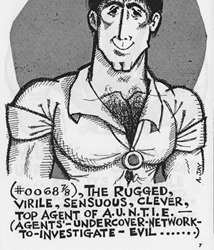
(Fig 01) Harry Chess That Man from A.U.N.T.I.E. https://glreview.org/article/the-lives-and-times-of-harry-chess/
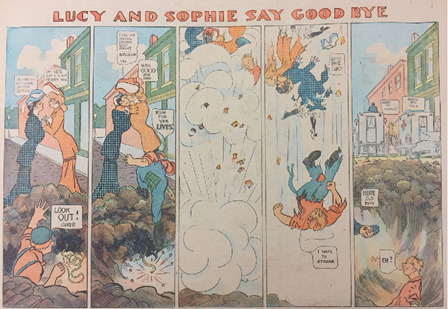
(Fig. 02) Lucy and Sophie Say Goodbye, May 21, 1905. Chicago Tribune.
Unlike Lucy and Sophie Say Goodbye, which could be interpreted as an exaggerated parody of women's social behavior, Harry Chess and Kake were inherently sexual and left little for subtext. Murphy (2014) describes the publication of Harry Chess as a key shift in gay publications and gay politics, and Ajuan Mance in The Routledge Companion to books noted that the explicit sex in strips of the two comics “created both a space and a demand for broader portrayals of gay men’s lives”. (Bramlett, Cook and Meskin, 2016).
To provide context for where the United States was in laws concerning queer rights in the ’60s, Illinois had just become the first U.S. state to decriminalize homosexuality by repealing its sodomy laws, and several milestone protests including the Stonewall Riot occurred during the decade The Supreme Court had also ruled in favor of an LGBT magazine when a suit was filed against them after the U.S. Postal Service and FBI declared the magazine obscene material. (Milestones in the American Gay Rights Movement | American Experience | PBS, 2021). There had been little progress in legal rights compared to the country’s present status, but queer Americans were visibly fighting for them.
The late 1970s and early 1980s saw the next wave of queer comics like Wendel, It’s a Gay Life, Leonard and Larry, Poppers and Chelsea Boys, which were all published in gay magazines. These comics reflected their primarily gay male readership in that the characters “attended gay pride celebrations, shopped at LGBTQ bookstores, and responded to the AIDS crisis, the Defense of Marriage Act (DOMA), and Don’t Ask/Don’t Tell, all while falling in and out of love.” (Bramlett, Cook and Meskin, 2016).
It was not until about 28 years later in Marvel’s Captain America Vol. 1 #270 (1982) that either of the large mainstream comics publishers (Marvel and DC) featured a story-line depicting queer or trans characters (Bramlett, Cook and Meskin, 2016). In this issue, Captain America helps his childhood best friend, Arnie, by rescuing Arnie’s close friend, Michael. Through subtext, it seemed to become clear to Captain America that Arnie and Michael were, in fact, a couple. (https://marvel.fandom.com/wiki/Captain_America_Vol_1_270).
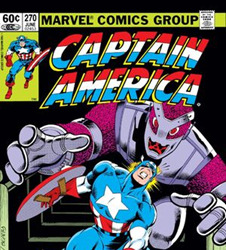
(Fig. 03) Cover of Marvel’s Captain America Vol. 1 #270 (1982)(https://marvel.fandom.com/wiki/Captain_America_Vol_1_270).
Throughout the 1980s, more queer characters were depicted, although indirectly and still with subtext like Captain America’s Arnie. The CCA, in response to the greater inclusion of LGBTQ characters and themes in the film and other popular media forms, revised its Code to lift its prohibitions against queer characters and content. CCA-approved comics however were to avoid the graphic depiction of “sexual activity” and that depictions of adult relationships, “be presented with good taste, sensitivity, and in a manner, which will be acceptable by a mass audience” (CCA 1989).
Over the years to date, DC and Marvel have introduced characters explicitly stating their orientation, including Northstar, an X-Men character; members of The Runaways and the Young Avengers; and notably Batwoman, who came out as a lesbian. The popular Archie Comics in 2010 introduced a gay character named Kevin Keller (Fig. 04) who eventually had his spinoff comic in 2012. Ajuan Mance noted the debut of Kevin Keller as queer attracted a higher level of attention than any Marvel or DC character (Bramlett, Cook and Meskin, 2016). In 2014, Kelvin Keller got married to his spouse in the Life with Archie series (Fig. 05) a few years after New York and other US states legalized same-sex marriage and a year before the Supreme Court declared same-sex marriage legal.
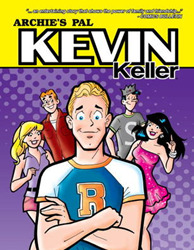
(Fig. 04) https://www.goodreads.com/book/show/11661956-kevin-keller
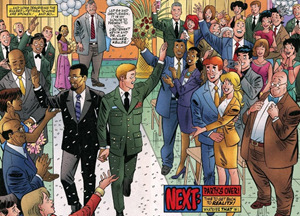
(Fig. 05) https://womenwriteaboutcomics.com/2019/06/the-wedding-issue-pride-edition-kevin-keller-and-clay-walker/
Taking this study for use in the Nigerian context can be applied in different ways. In the US, when the laws were restrictive and limiting towards queer content, the creators of comics and graphic novels under mainstream publishers had to operate in line with the laws. The creators could merely represent queer people through subtext. Unambiguous representation was only viewed through underground magazines from the ’60s up to the ’80s. In today’s age, Nigeria still has comparable, if not more regressive laws, but the Internet provides a similar and arguably better platform than the 20th century underground comics did.
The ease of access and ability to self-publish can cut out the publishing middleman, and I can illustrate distribute the stories I want via the Internet and social media platforms. Of course, if I am fortunate to secure a publishing deal for other ideas I have, I can employ subtext to include queer elements.
I will carry out more research on the best ways to present these proposed comics. Do I go in the explicit and sexually charged direction like Harry Chess and Kake to show a boldness and an unapologetic display of Nigerian queerness? Do I go the route of illustrating average Nigerian queer people to reflect their humanity hopefully to convince prejudiced people that queerness is not an abnormality? Or do I represent queerness in my comics for the Nigerian queer people to identify themselves in the media? These questions relate to the audience I want to reach because they will inform the content I want to create.
References
Bramlett, F., Cook, R. and Meskin, A., 2016, The Routledge Companion To Comics, Taylor & Francis Group.
Chute, H. 2008, "Comics as Literature? Reading Graphic Narrative", PMLA : Publications of the Modern Language Association of America, vol. 123, no. 2, pp. 452-465.
McGurk, C., 2018, Lovers, enemies, and friends: The complex and coded early history of lesbian comic strip characters, Journal of Lesbian Studies, 22:4, 336-353, DOI: 10.1080/10894160.2018.1449502
Murphy, M., 2014, The Lives and Times of Harry Chess, The Gay & Lesbian Review , 21(2): 22– 24.
Pbs.org. 2021. Milestones In The American Gay Rights Movement | American Experience | PBS. [online] Available at: <https://www.pbs.org/wgbh/americanexperience/features/stonewall-milestones-american-gay-rights-movement/> [Accessed 12 January 2021].
25 notes
·
View notes
Text
With ‘Orange Is the New Black’ season 4, drama becomes formulaic
Orange Is the New Black has become a slowly molding piece of bread. Its unpleasant to chew and swallow. Andwhats the point?
Once upon a time, we were hooked on the super binge-worthy Netflix show, based on the memoir by Piper Kerman about her year in a womens prison. Season 4 lands in our queue today, and who knew a show about an upstate New York women’s prison would hook Americans?
The prison dramedy setup created a fun formula. Everything has to take place either in the prison, is part of an attempt to get out of prison, or exists in a flashback of the past. Any possible stories about the future can be only fantasieshere the women are cut off from the outside real world.
Its been a perfect structure for creating conflicts, because the most interesting things happen between diverse women who would not normally mix. Hence, viewers are thrust into a world full of candid though at times surface-level dialogues about race and class, as well as unforeseen friendships, surprise romances, and prison-specific hierarchical conflicts.
That used to be enough.
In season 4, Piper (Taylor Schilling) is meaner and more of a badass at the prison because of her prison fame, panty-laundering business, and the fact that shes been burned by friends and lovers alike. She becomes a lone wolf. Alex (Lauren Prepon), whom we last saw in a harrowing cliffhanger, gets into other types of trouble. The guards and new warden Joe Caputo (Nick Sandow) deal with ramifications of the new corporate prison system. And there are of course some key lines about systemic racism from quite a few of the characters. Theres more narrative backstory for other peripheral characters, but there are so many people that its hard to keep track of everyone, let alone care. In terms of narrative structure, it feels like a lot of the dramatic conflicts have already been resolved. So, what else is there to do at Litchfield?
A celebrity named Judy King (Blair Brown), a curious combo of Martha Stewart and Paula Deen, rolls into Litchfield. We get more backstories, and there are new romances in the prison. A Bill Cosby one-liner even finds its way into the pop culture-obsessed dialogue. But whats keeping us hooked that hasnt already been resolved? If Orange Is the New Black is to continue its must-stream vitality, it needs to make us care again. Weve become the Litchfield prisoners, complacent with the system, robotically binging until its overor hoping for some drama that will also shift the shows trajectory.
In season 3, the romance died down between Piper and Alex. Piper became very involved in her prison-specific business. Thats when audiences began to drown in origin stories, because the writers room couldnt count as much on that high-stakes romance. At the end of season 3, we saw a dramatic finale with an attempt at breaking out but not reallythe women escape through a hole in the fence, and merely go for a swim.
Season 2 ended in a similar way, with Miss Rosa (Barbara Rosenblat), a cancer sufferer, driving away in a stolen prison van, hitting and killing the manipulative Yvonne Vee Parker (Lorraine Toussaint) on the way. We are somehow satisfied by these end-of-season breakouts; wanting the prisoners to have some sort of future in the real world. But we also accept that if they do they will no longer be a part of the show. This is where the possibilities inherent in this type of prison narrative start to feel more limiting. People get out or stay in; there is no in-between.
This limited structure can be linked to the prison film genre, as described by David Wilson and Sean OSullivan in their book Images of Incarceration: Representations of Prison in Film and Television Drama. They note that movies about prison encourage us to identify with the prisoners and in our hearts we want them to win. But with our head, when they lose, we perhaps accept that this is the way it must be.
And so it is with OITNB. Except that in this show, we end up identifying with practically every character prisoner or guard and also accept that winning doesnt necessarily mean getting out of prison or beating the system. Winning could be overcoming a drug addiction, which happened with Nicky Nichols (Natasha Lyonne). It could be getting proper mental healthcare, which is what we hope for Suzanne Crazy Eyes Warren. Either way, winning takes place within the context of the prison.
More contrived is the queer romantic intrigue in this show, which seems to be aligned within strict film tropes like Catholic girls boarding schools. Think 1931���sGirls in Uniform (1931). In it, a young woman named Manuela is sent to a strict all-girls boarding school, and falls in love with her teacher. We see the dynamics and consequences of queer love in an all-women environment, and the ways it is reprimanded, punished, and seen as immoral. These types of dynamics transfer even to the present-day OITNB. The lesbian sex may be more porn-like and less punishable for being queer in and of itself, but its still punishable because, behind bars, prisoners shouldnt be touching.
Look, the show has done a lot for rising stars. Uzo Aduba (Suzanne Crazy Eyes Warren) won an Emmy for her performance. Actors like Samira Wiley (Poussey), Danielle Brooks (Taystee), and Adrienne C. Moore (Black Cindy) bring vital person-of-color narratives into the mainstream. There is a believable and beautiful trans narrative in Laverne Cox, the very smart and complex character of Galina “Red” Reznikov (Kate Mulgrew), and serious butch bad-assery with Boo (Lea DeLaria). But despite all of the great things that have come out of OITNB, the plots have gotten weirdly repetitive, character reveals less engaging, and romantic intrigue getsblas. Season 4 fails because it is less about the shows intrinsically interesting characters and their situations, and viewers are left with the glaring limitations of setting the series in prison.
Screengrab via Netflix US & Canada/YouTube
Read more:
The post With ‘Orange Is the New Black’ season 4, drama becomes formulaic appeared first on vitalmindandbody.com.
from WordPress http://ift.tt/2rnS5Dh via IFTTT
0 notes